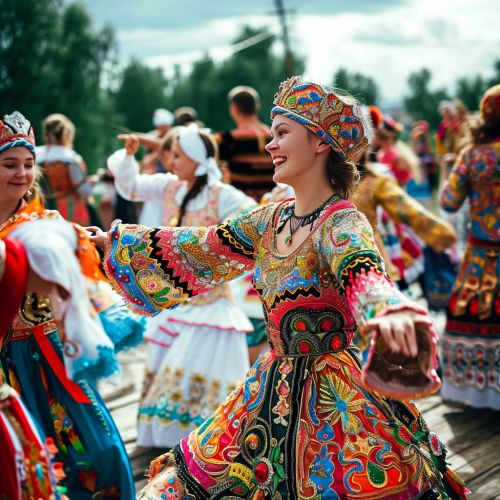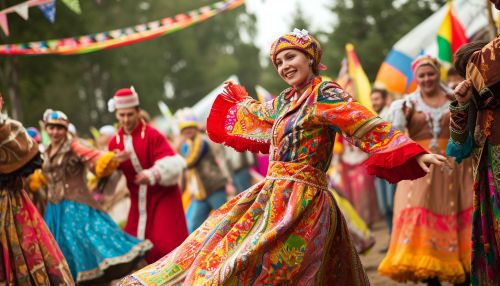Russian Culture
Introduction
Russian culture has a rich history, steeped in literature, ballet, painting, and classical music. While outsiders may see the country as drab, Russians are deeply passionate about their cultural heritage and have a deep appreciation for the finer things in life.


History
The history of Russian culture can be traced back to the East Slavs and the Finno-Ugric peoples. The culture of the Rus' people was influenced significantly by the Byzantine Empire and the Orthodox Church. Russia's 160 ethnic groups speak some 100 languages. According to the 2002 census, 142.6 million people speak Russian, followed by Tatar with 5.3 million and Ukrainian with 1.8 million speakers. Despite its wide dispersal, the Russian language is homogeneous throughout Russia.
Literature
Russian literature is considered to be among the most influential and developed in the world, contributing many of the world's most famous works. Russian literature has gone through several different periods, all of which have unique characteristics and themes. The first period, known as the Kievan period, was characterized by the adoption of Christianity and the establishment of a written language. This period was followed by the Muscovite period, the Imperial period, the Soviet period, and the Post-Soviet period.
Visual Arts
Russian visual arts include a rich tradition of painting, sculpture, graphics, and crafts. The history of Russian painting dates back to the icon painting of the Orthodox Church in the Middle Ages. The 18th and 19th centuries were a period of significant growth for Russian visual arts, with the emergence of a number of renowned painters such as Ivan Aivazovsky, Ilya Repin, and Vasily Vereshchagin.
Music and Dance
Russian music and dance are renowned around the world, with the country producing numerous famous composers, musicians, and dancers. Russian classical music, in particular, is considered one of the most important and influential in the world, with figures such as Pyotr Ilyich Tchaikovsky, Sergei Rachmaninoff, and Igor Stravinsky making significant contributions to the genre.
Cuisine
Russian cuisine is diverse, with Northern and Eastern European, Caucasian, Central Asian, Siberian, and East Asian influences. Russian cuisine derives its varied character from the vast and multi-ethnic expanse of Russia. Its foundations were laid by the peasant food of the rural population in an often harsh climate, with a combination of plentiful fish, poultry, game, mushrooms, berries, and honey.
Religion
Religion in Russia is diverse, with a 1997 law naming Christianity, Islam, Buddhism, and Judaism as important in Russian history. Orthodox Christianity is Russia's largest religion with 75% of the population belonging to the Orthodox Christian denomination. Islam is professed by 5% of the population. Catholicism, Protestantism, Judaism and Buddhism are professed by 1% of the population each.
